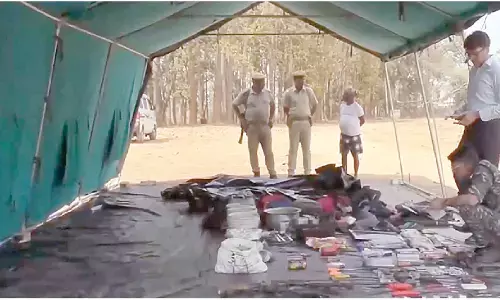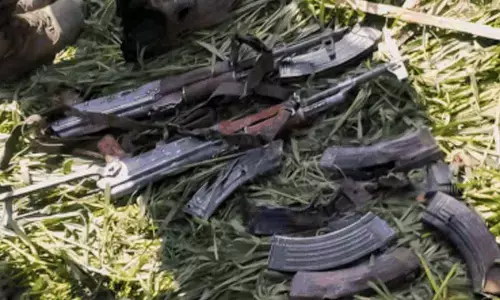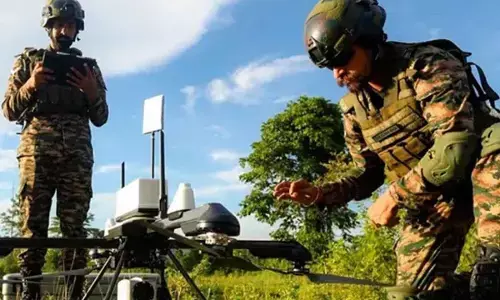The Great Indian Editor

The Great Indian Editor.If someone has difficulty in understanding what Simone de Bouvier meant by words withering at the ‘p’ of the pen, all he needs to do is try to write about Manikonda Chalapathi Rau (1910-1983). One just would not know where to begin.
.jpg) hall of fame
hall of fame
Manikonda Chalapathi Rau, MC, to his admirers, known for his fearless, unbiased and forceful writing remains the greatest Editor that English journalism in India has seen
If someone has difficulty in understanding what Simone de Bouvier meant by words withering at the ‘p’ of the pen, all he needs to do is try to write about Manikonda Chalapathi Rau (1910-1983). One just would not know where to begin. Chalapathi Rau (MC to millions of admirers) did not wish to be a journalist. While at college, he would read newspapers from the mast head to the imprint. The exercise often left a bad taste in his mouth.
He became editor of National Herald of Lucknow when the paper re-opened in 1946 after it had been searched and closed down by the then government. The paper was founded by Jawaharlal Nehru in 1938. Before that he had been an assistant editor in the same paper, writing forceful editorials and articles. Few journalists in the country have been able to write with such force, fewer have attained that felicity of phrase. After a stint as Assistant Editor in The Hindustan Times, necessitated by the closure of National Herald, MC returned to the paper whose destiny he was destined to guide. Earlier, he took an active part in the underground Press Movement during the Independence struggle.
He wrote what he felt like writing. Fear had never learned to bestir itself in his breast. And favour was something he did not know what it was to seek. It speaks for the greatness of the man that he never wrote out of malice. Of course, he was uninhibited in criticising the Government. But he was equally uninhibited in criticising such Congressmen as deserved to be criticised. The point is that all his quarries read his pieces with relish even when the joke was on them. He wrote a column under the pseudonym of Magnus and what he wrote was magnificent.
Jawaharlal had enormous respect for freedom of the Press. He had greater respect for MC’s freedom. Every word MC had ever written was tense with truth and A stage came in the history of independent India when freedom was sought to spread falsehood, and MC warned the nation that the seekers prized neither freedom nor truth.In the wake of the vertical split in the Congress the Indian Press as a whole turned against the Government. That, in itself, was unexceptional. But, what was frightening was that in the name of criticising the Government for various sins of commission and omission, some elements tried to demoralise people. MC’s voice rose, loud and clear, and before this voice of reason the cacophony of communalists, although it had reached the hysterical heights of Seig Heils at a Nazi Congress, sounded dull. His analysis of the situation was as reasoned as it was brilliant. The people rejected rhapsody for reason.
MC was the first president of the Indian Federation of Working Journalists (IFWJ) in 1950, and continued in that post for five years. He led the Indian Press delegation which accompanied Jawaharlal Nehru on his epoch-making tour of the USSR, Poland and Yugoslavia in 1955. He was also a member of the Indian Government’s Goodwill Mission to China in 1952. Besides being a member of the UNESCO Press Experts Committee, MC also worked on various UNESCO Commissions. In 1958, MC represented India in the United Nations General Assembly. Chalapathi Rau was also a member of the Initiating Committee of the International Press Institute.I fervently hope the Andhra Pradesh Government and the Sahitya Akademi, or some large-hearted Telugu NRIs will seriously consider publication of a biography of every one of the great Andhra journalists starting with MC. Their attainments were so numerous that justice can be done to them only in a book.
By YV Ramakotaiah




